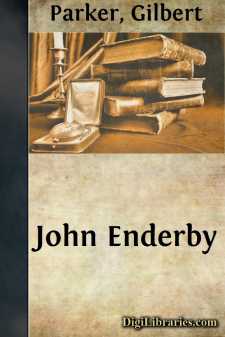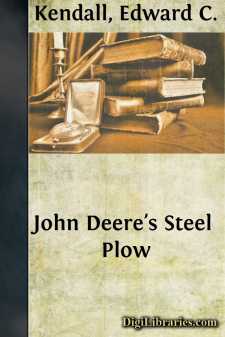Fiction
- Action & Adventure 180
- Biographical 15
- Christian 59
- Classics
- Coming of Age 5
- Contemporary Women 3
- Erotica 8
- Espionage/Intrigue 12
- Fairy Tales, Folklore & Mythology 236
- Family Life 169
- Fantasy 117
- Gay 1
- General 596
- Ghost 32
- Historical 808
- Horror 43
- Humorous 160
- Jewish 25
- Legal 4
- Medical 22
- Mystery & Detective 315
- Political 49
- Psychological 41
- Religious 64
- Romance 159
- Sagas 11
- Science Fiction 730
- Sea Stories 113
- Short Stories (single author) 537
- Sports 10
- Suspense 1
- Technological 8
- Thrillers 2
- Urban Life 31
- Visionary & Metaphysical 1
- War & Military 173
- Westerns 199
Classics Books
Sort by:
CHAPTER I. CAPTAIN ARUNDEL'S REVENGE. Edward Arundel went back to his lonely home with a settled purpose in his mind. He would leave Lincolnshire,—and immediately. He had no motive for remaining. It may be, indeed, that he had a strong motive for going away from the neighbourhood of Lawford Grange. There was a lurking danger in the close vicinage of that pleasant, old-fashioned country mansion,...
more...
CHAPTER I. MARY'S LETTER. It was past twelve o'clock when Edward Arundel strolled into the dining-room. The windows were open, and the scent of the mignionette upon the terrace was blown in upon the warm summer breeze. Mrs. Marchmont was sitting at one end of the long table, reading a newspaper. She looked up as Edward entered the room. She was pale, but not much paler than usual. The...
more...
CHAPTER I. THE MAN WITH THE BANNER. The history of Edward Arundel, second son of Christopher Arundel Dangerfield Arundel, of Dangerfield Park, Devonshire, began on a certain dark winter's night upon which the lad, still a schoolboy, went with his cousin, Martin Mostyn, to witness a blank-verse tragedy at one of the London theatres. There are few men who, looking back at the long story of their...
more...
by:
George W. Cable
SUEZ In the State of Dixie, County of Clearwater, and therefore in the very heart of what was once the "Southern Confederacy," lies that noted seat of government of one county and shipping point for three, Suez. The pamphlet of a certain land company—a publication now out of print and rare, but a copy of which it has been my good fortune to secure—mentions the battle of Turkey Creek as...
more...
by:
John Masefield
I first met John M. Synge at the room of a common friend, up two pairs of stairs, in an old house in Bloomsbury, on a Monday night of January, 1903. When I entered the room, he was sitting in a rush-bottomed chair, talking to a young man just down from Oxford. My host introduced me, with the remark that he wanted us to know each other. Synge stood up to shake hands with me. He was of the middle height,...
more...
CHAPTER I. EARLY LIFE AND CALL TO THE MINISTRY, 1505-1547. On the sixteenth day of January, 1546, George Wishart delivered a remarkable sermon in the church of Haddington. Two things had combined to produce special depression in his heart. Shortly before he entered the pulpit a boy had put into his hands a letter informing him that his friends in Kyle would not be able to keep an appointment which they...
more...
by:
Gilbert Parker
I Of all the good men that Lincolnshire gave to England to make her proud, strong and handsome, none was stronger, prouder and more handsome than John Enderby, whom King Charles made a knight against his will. "Your gracious Majesty," said John Enderby, when the King was come to Boston town on the business of draining the Holland fen and other matters more important and more secret,...
more...
CHAPTER I THE COMING OF JOHN DENE "Straight along, down the steps, bear to the left and you'll find the Admiralty on the opposite side of the way." John Dene thanked the policeman, gave the cigar in his mouth a twist with his tongue, and walked along Lower Regent Street towards Waterloo Place. At the bottom of the Duke of York's steps, he crossed the road, turned to the left and...
more...
John Deere in 1837 invented a plow that could be used successfully in the sticky, root-filled soil of the prairie. It was called a steel plow. Actually, it appears that only the cutting edge, the share, on the first Deere plows was steel. The moldboard was smoothly ground wrought iron. Deere's invention succeeded because, as the durable steel share of the plow cut through the heavy earth, the...
more...
by:
Anthony Trollope
Chapter I Folking Perhaps it was more the fault of Daniel Caldigate the father than of his son John Caldigate, that they two could not live together in comfort in the days of the young man's early youth. And yet it would have been much for both of them that such comfortable association should have been possible to them. Wherever the fault lay, or the chief fault—for probably there was some on...
more...











